Age is a measurement of how many times you’ve rotated around the sun while standing on the face of Earth. …And that’s basically it. Think about it…
How old are you?
How old do you feel?
How old do you look?
How old do you act?
If you’re like most people, there’s a different number associated with most of the questions above.
Most people today are obsessed with age. Everyone wants to look younger and feel younger, but for some reason, not everyone wants to act younger!
Why? Well, that’s because “”maturity”” is something very different than “”age””.
Unlike the scientific measurement of age, maturity is more loosely defined as ”your ability to understand yourself, your life, your community, your environment, and the effect they all have on each other”.
Some people mature quicker…, some people age slower. It all depends on individual life experience and DNA-rooted genetics.
In this article, we’ll explore the difference between age and maturity by examining expert opinions, different perspectives, and the latest science.
Age vs Emotional Maturity
The Difference Between Chronological Age and Emotional Maturity
Chronological Age
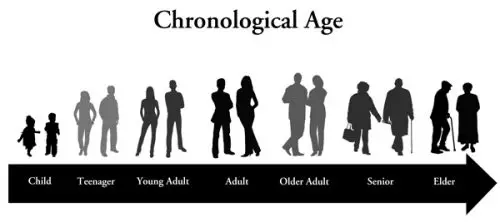
Chronological age is straightforward – In the realm of science, age is defined as the duration that has passed since an entity’s birth, creation, or emergence.
For us humans, age is the number of years we’ve been on the planet.
If we look deeper age is, really, only a quantitative measure of time, often expressed in units such as years, months, days, or seconds, which allows us to compare and track progress and time.
In a biological sense, our age does provide a general structure for how our life story unfolds.
Age is used as a measurement of an organism’s lifespan, tracking the progression from birth to death. Humans are no different.
Emotional Maturity
Unlike chronological age, emotional maturity doesn’t strictly follow the calendar. Emotional maturity speaks to the ability to manage your emotions and empathize with others. It’s a complex blend of cognitive, emotional, and social capabilities reflecting on an individual’s readiness and ability to handle life’s challenges responsibly.
Cognitive maturity shapes our reasoning skills, problem-solving, and abstract thinking, enabling the brain to optimize sound decision-making and increasing our ability to navigate complex scenarios effectively.
Those with high emotional maturity demonstrate resilience, maintain stable relationships, handle conflicts, and exhibit empathy and compassion, all traits that are essential in today’s increasingly interconnected world.
It’s been said that “The color and deep richness of our lives come from our developments in emotional maturity.” – Unknown
Real-life (Family Guy Parody) Example of Age vs. Maturity
In the Griffin household, the disparity between two siblings both in their thirties, Meg Griffin and Chris Griffin, is glaringly obvious.
Meg, stuck in a perpetual cycle of thirst for validation, embodies the epitome of emotional stagnation.
She clings to material achievements for self-worth, broadcasting them on social media for fleeting gratification.
Her interactions with the family are riddled with envy, and her lack of emotional depth is glaringly apparent.

Contrastingly, Chris, despite the shared chaotic upbringing, has evolved into a beacon of emotional maturity.
His self-awareness, empathy, and use of self-improvement resources paint a stark contrast to Meg’s perpetual pettiness.
His dealings with the family are marked by honesty and mutual respect, shedding light on his emotional growth.
Ultimately, the Griffin family saga underlines the truth that age doesn’t dictate emotional maturity. Despite both being the same age, Chris’s journey clearly demonstrates the power of emotional growth, while Meg’s childish actions serve as a warning against remaining stuck in a cycle of emotional immaturity.
Understanding Age and Maturity: The Psychology
By drawing on the insights of well-respected social, neurological, and cognitive psychologists, we can deepen our understanding of age and maturity within the context of individual psychological development.
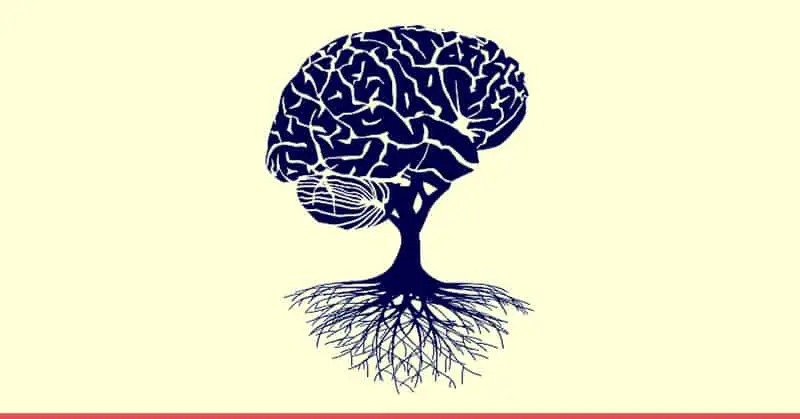
Key Theories On Psychological Development And Age Growth
Piaget’s Theory of Cognitive Development:
Piaget’s theory, developed by the influential Swiss psychologist Jean Piaget, provides valuable insights into the cognitive development process. It highlights the importance of cognitive growth in fostering maturity, as individuals progress through distinct stages of thinking and acquire the necessary skills for mature decision-making, problem-solving, and abstract reasoning.
Erikson’s Theory of Psychosocial Development:
Erikson’s theory, developed by the German-American psychologist Erik Erikson, focuses on the social and emotional aspects of development. It illuminates how successfully navigating psychosocial crises at each stage contributes to maturity. By resolving challenges related to trust, autonomy, and generativity, individuals can advance toward greater maturity.
Freud’s Psychosexual Development Theory:
Freud’s theory, proposed by the renowned Austrian psychoanalyst Sigmund Freud, explores the influence of early childhood experiences on psychological development. It suggests that unresolved conflicts during specific psychosexual stages can contribute to immaturity in adulthood. Addressing these conflicts through therapy or self-reflection can support personal growth and promote maturity.
Vygotsky’s Sociocultural Theory:
Vygotsky’s theory, developed by the prominent Soviet psychologist Lev Vygotsky, emphasizes the role of social interactions and cultural influences in cognitive development. It underscores how social collaboration and exposure to diverse cultural contexts facilitate maturity. Creating environments that foster social interactions and provide opportunities for learning from others can contribute to psychological growth.
Kohlberg’s Theory of Moral Development:
Kohlberg’s theory, formulated by the influential American psychologist Lawrence Kohlberg, focuses on the cognitive and moral dimensions of maturity. It proposes that individuals progress through stages of moral reasoning, with higher levels of maturity involving consideration of ethical principles, societal norms, and personal values. Cultivating moral development through education and exposure to ethical discussions promotes maturity in this domain.
These are all very interesting theories and although some may seem farfetched, they all certainly hold elements of truth. It’s important to note that the interpretation of these theories, although generally agreed upon, may vary among experts.
Age Developmental Stages and Maturity
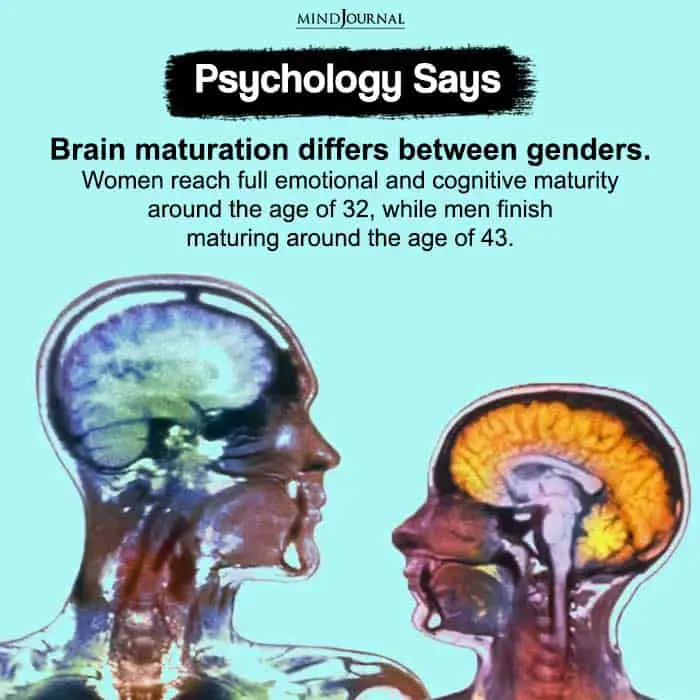
| Developmental Stage | Key Features | Age Range | Maturity |
| Infancy | Rapid physical growth, sensory and motor skills development, forming bonds with caregivers, and starting to trust the world. | 0-2 years | Infants are dependent on caregivers, but they’re laying the groundwork for future growth and maturity by developing trust and basic skills. |
| Early Childhood | Fast growth in language and thinking skills, pretend play, self-awareness, social skill building, and starting to grasp rules and morality. | 2-6 years | Kids gain more independence, language skills, and social smarts. They become more self-reliant, learn emotional control, and start understanding right and wrong, all contributing to their growing maturity. |
| Middle Childhood | Continued growth in thinking skills like logical thinking and problem-solving, improving social skills, making friends, gaining confidence and competence through school achievements. | 6-11 years | Kids show more independence, take on responsibilities, and start understanding societal expectations and rules. Their growing capabilities and confidence contribute to their maturation. |
| Adolescence | Major physical, emotional, and social changes, going through puberty, forming identity, dealing with peer and romantic relationships, and developing advanced thinking skills like abstract reasoning and future planning. | 12-18 years | Teens navigate big changes and challenges, developing their identity and personal values, and growing more autonomous. Maturing in this stage involves balancing independence with responsibility, making ethical choices, and thinking about long-term consequences. |
| Early Adulthood | Striving for independence, career development, forming deep relationships, exploring personal values, making life decisions, and growing personally and professionally. | 18-29 years | Young adults step into adult roles and responsibilities. Maturity here means having a clear sense of self, making independent decisions, taking responsibility for actions, growing in personal and professional realms, forming deep relationships, and understanding societal expectations. |
| Middle Adulthood | Career growth, maintaining relationships, raising a family, handling increased responsibilities, and making midlife adjustments and reassessments. | 30-59 years | People mature further by taking on more responsibilities in their jobs, families, and personal well-being. Maturity involves balancing work and life, adapting to changes, and giving back to the community. Middle-aged adults often show emotional stability, wisdom, and make sound decisions based on life experiences. |
| Late Adulthood | Retirement, adjusting to physical changes, reflecting on life, seeking meaning and purpose, enjoying leisure activities, and handling health and loss-related challenges. | 60+ years | As people enter their golden years, maturity is marked by reflection, acceptance, and fulfillment. They often have wisdom from a lifetime of experiences, showing resilience in the face of challenges and nurturing relationships. Maturity here means maintaining a positive outlook, accepting physical changes, and leaving a meaningful legacy. |
The Sociological Perspective of Age and Maturity
How Are Age and Maturity Looked At In Society
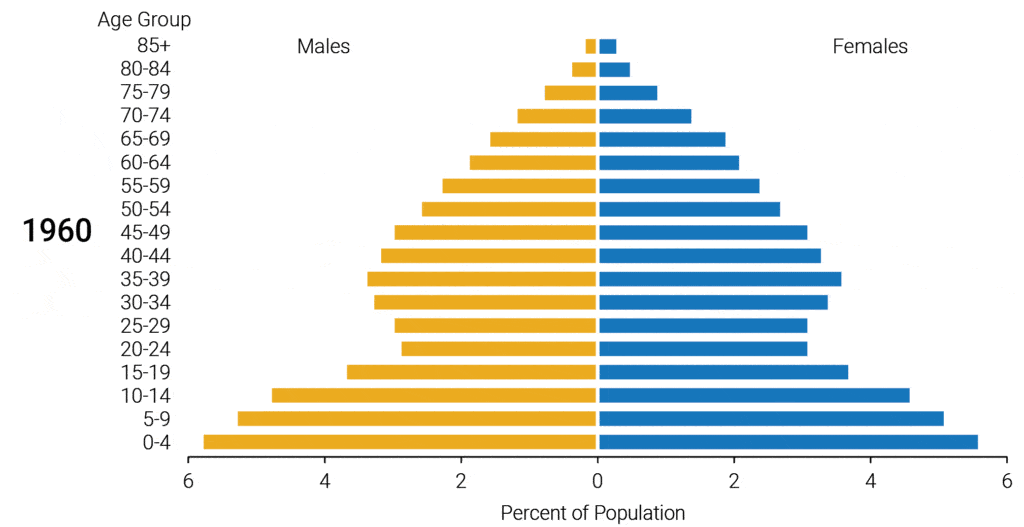
How Age And Maturity Define Social Roles And Responsibilities
Age and maturity are fundamental factors in shaping social roles and responsibilities within a given society. Societies establish age-based expectations that delineate the roles individuals are expected to fulfill at different stages of life.
As Frontiers in Psychology points out, these expectations create a structured framework for societal participation. For example, children are typically guided toward education, adolescents are encouraged to pursue higher learning or vocational training, and adults are expected to contribute to the economy.
These are all societal expectations based on age, not necessarily maturity or intellect.
Legal and civic responsibilities also intertwine with age, as specific rights, privileges, and obligations are often contingent upon reaching different age thresholds.
For example driving at age 16, gambling at age 18, drinking at age 21, renting a car at age 25, renting a boat without a license at age 35, receiving social security at age 65, etc.
Michael Hechter, an American sociologist and Foundation Professor of Political Science at Arizona State University, reminds us that social norms have been the foundation of civilization since biblical times.
Age and Maturity in Ancient Civilizations vs. Today
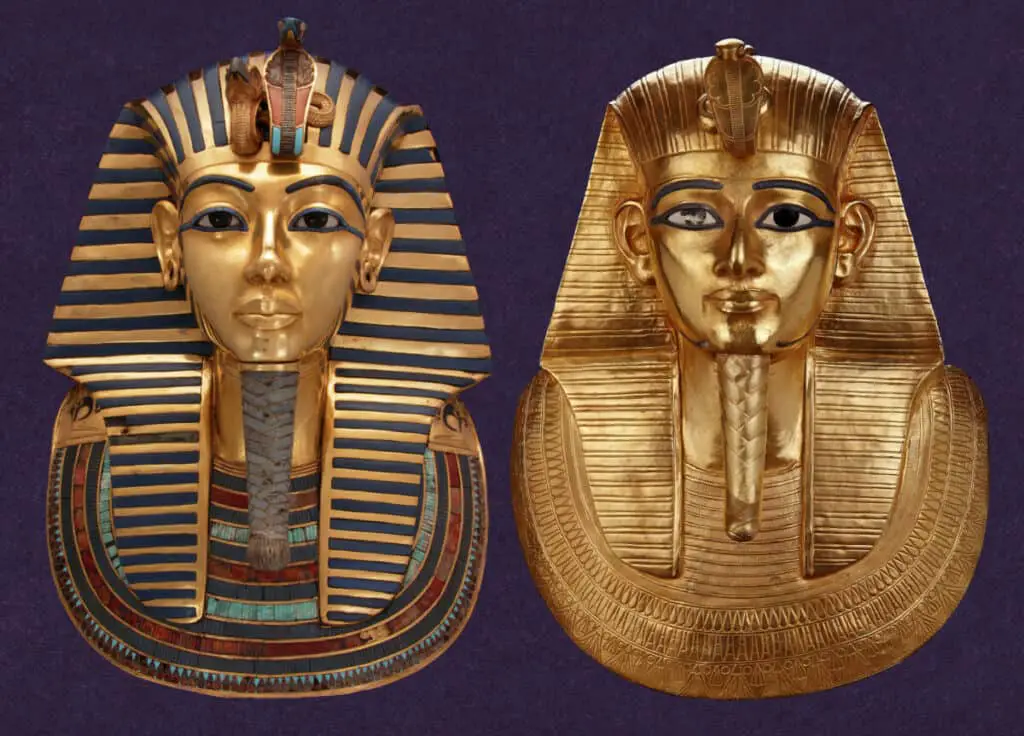
| Ancient Egypt | Ancient Greece | Ancient China | Mesopotamia | Today | |
| Perspective on Age and Maturity | Egyptians esteemed age and spiritual maturity. The concept of “Akh” portrayed spiritual transcendence, with maturity and wisdom elevating one to a luminous being in the afterlife. This mirrored their views on earthly leadership, where those of higher age and wisdom were preferred. | Greeks revered “Sophrosyne,” a trait encompassing moderation and self-understanding, reflecting an individual’s maturity. A balanced life expressed “arete” – achieving full potential through excellence, with wisdom often being the crux of this balance. | Confucianism in Ancient China saw age as wisdom’s marker, with maturity deeply connected with the practice and development of virtues like filial piety and ritual propriety. | Mesopotamians deeply respected age, associating it with wisdom and a divine connection. They saw maturity as enabling effective contributions to the community and responsible decision-making. | Today’s psychological understanding reveals that age and maturity do not always correlate. Life experience and wisdom remain important, but the value placed on these aspects varies greatly across cultures, with some societies emphasizing innovation and adaptability, often associated with younger generations. |
| Societal Role | Egyptians held Ma’at, symbolizing truth, balance, and cosmic order, in high regard. Age and maturity were crucial for maintaining Ma’at, particularly in authoritative roles such as pharaohs, priests, and administrators. | Greek society regarded age and wisdom as crucial qualifications for governance. Older individuals, often recognized as elder statesmen, played key roles in societal and philosophical leadership. | Ancient China revered older individuals as societal stability cornerstones. Their age and accumulated wisdom dictated their role within the family and wider society, aligning with Confucian virtues. | Mesopotamian society, guided by the Code of Hammurabi, stressed age and wisdom in determining societal roles and hierarchy. Elders often served in influential positions, such as advisors or judges. | In modern society, roles are diverse and influenced by various factors beyond age and maturity. Education, professional experience, skills, and adaptability in a rapidly evolving technological landscape play crucial roles in shaping one’s societal position and responsibilities. |
| Commonalities Across Civilizations | Across these civilizations, age and wisdom were seen as gateways to spiritual understanding and societal order. Inter-generational relationships were vital in maintaining societal cohesion and ensuring the transmission of cultural norms and wisdom. Age often determined social status and hierarchy, with older individuals respected as wisdom and experience custodians. | ||||
| Differences Between Ancient Cultures and Today | Ancient Egyptians placed significant emphasis on spiritual maturity, with a more direct connection between age and societal hierarchy. | Greek society’s pursuit of balance, wisdom, and excellence, while still appreciated today, does not dictate life in the same philosophical way. | Confucian concepts such as filial piety and ritual propriety, while still influential in East Asia, do not have the same universal societal influence as in Ancient China. | Age and wisdom were absolute determinants of societal hierarchy in Mesopotamia, whereas today’s societal structures are more complex and varied. | Modern societies prioritize youthfulness, innovation, and technological literacy, leading to changes in societal roles and hierarchies. Education, professional achievements, and psychological/emotional intelligence also play key roles in shaping these dynamics. |
Debunking Myths and Misconceptions About Age and Maturity
Common Misconceptions
Like most things in life, misconceptions about age and maturity can lead to oversimplified understandings.
One common misconception assumes a linear progression of maturity with age, but in reality, maturity is influenced by various factors such as life experiences, emotional development, and self-reflection.
Maturity does not solely depend on chronological age.
Another misconception equates age with maturity based on external appearance alone, disregarding the cognitive, emotional, and social aspects that define maturity.
Maturity is a continuous process of personal growth and self-reflection that varies for each individual, shaped by cultural, social, and personal circumstances.
Additionally, the notion that maturity requires suppressing emotions or being stoic overlooks the importance of emotional intelligence and the balanced expression of emotions.
True maturity involves developing emotional regulation skills while embracing and acknowledging one’s emotional experiences.
Final Thoughts on Age vs Maturity
In the timeless dance of age and maturity, we all as humans undergo personal growth and societal development.
Age, often perceived as the gateway to maturity, is merely a number on life’s calendar.
Maturity, however, is a complex tapestry woven from experiences, emotional intelligence, and personal growth.
It defies linear expectations and embraces each individual’s unique essence.
True maturity goes beyond years accumulated, encompassing emotional intelligence and the ability to navigate life’s complexities with wisdom and grace.
If there’s anything we learned writing this article it’s that maturity is a testament to our capacity for growth, resilience, and understanding. And that while age may be associated with maturity, younger generations can possess wisdom beyond their years. Conversely, some older generations may repeat past mistakes, demonstrating that age is not always indicative of maturity.
Loved what you read?
Hit that share button and let the world in on the secret – we’d be thrilled!
Got thoughts? We’re all ears for your feedback, corrections, or a good old chat. Don’t be shy; drop us a line.
And hey, don’t miss out on our curated list of must-reads in the recommended books section.
Big thanks for diving in with us today!



